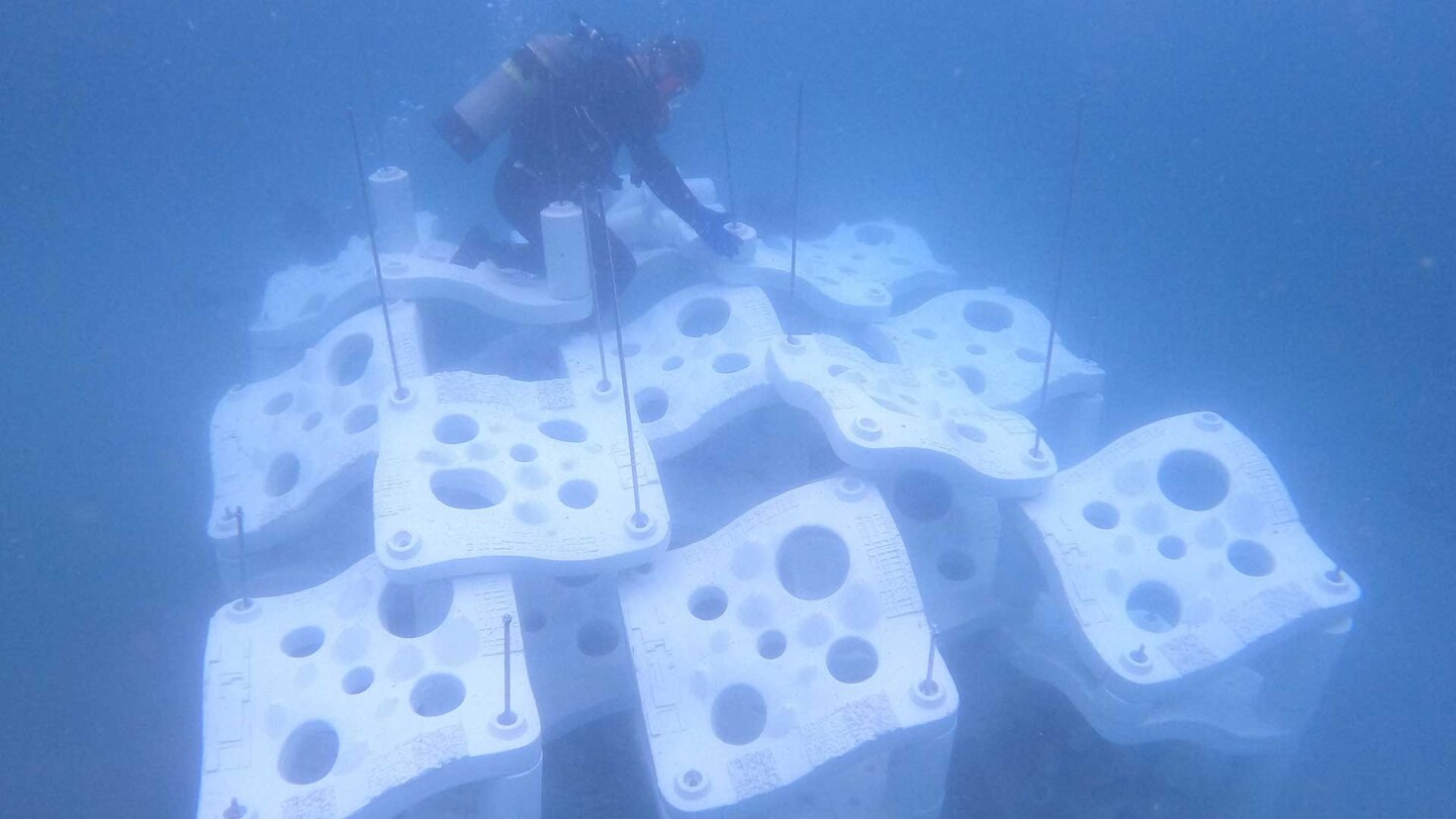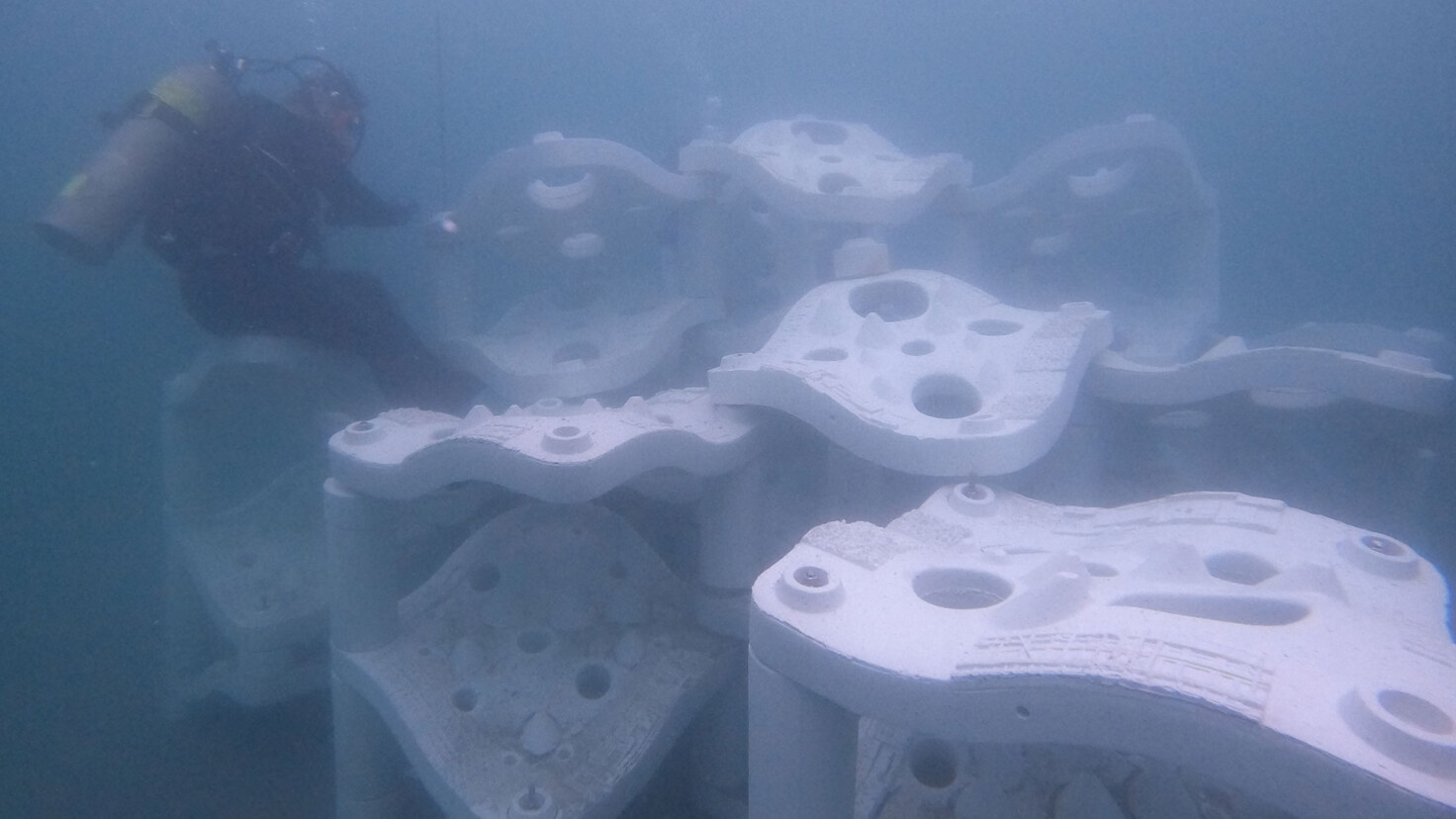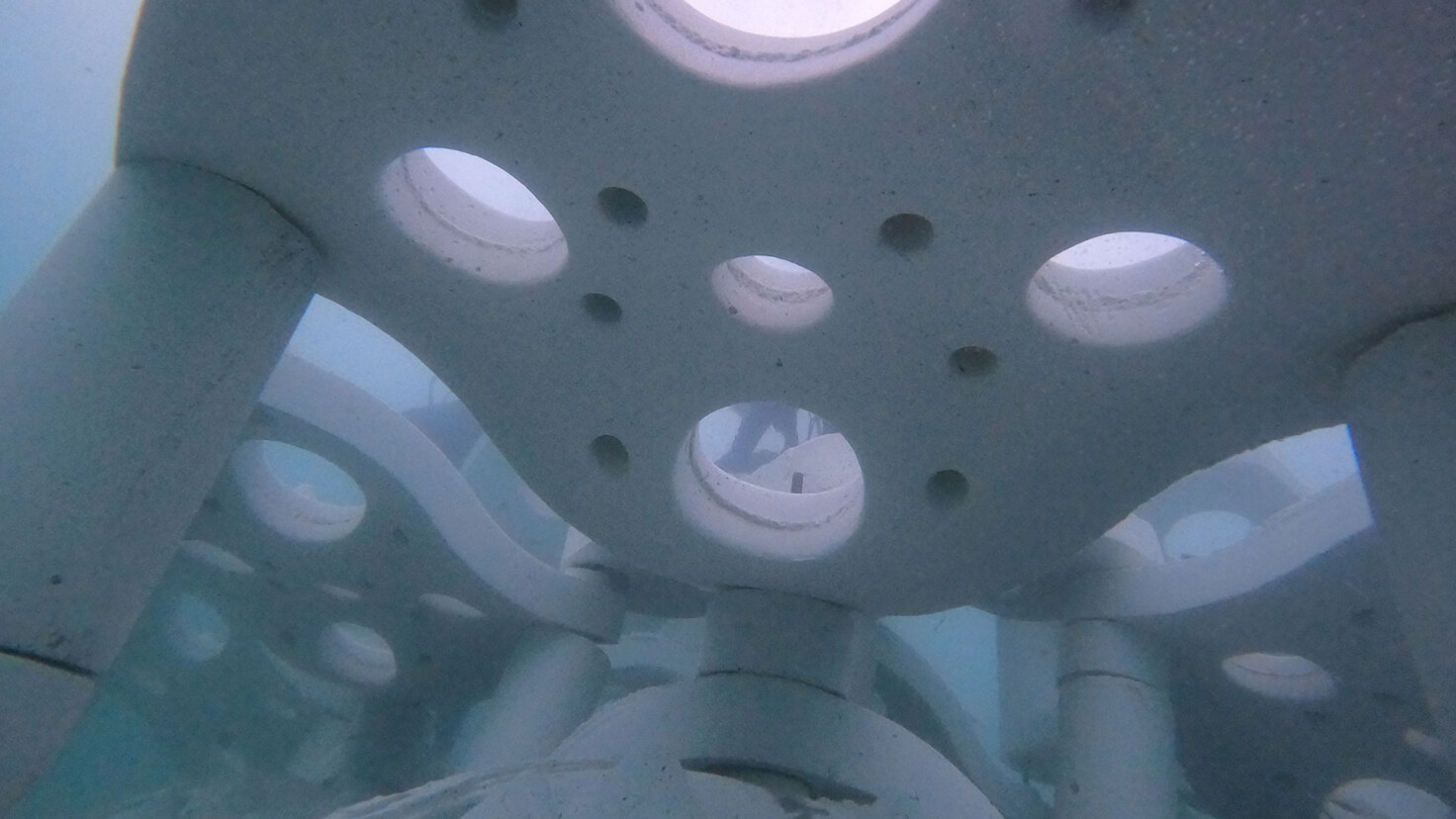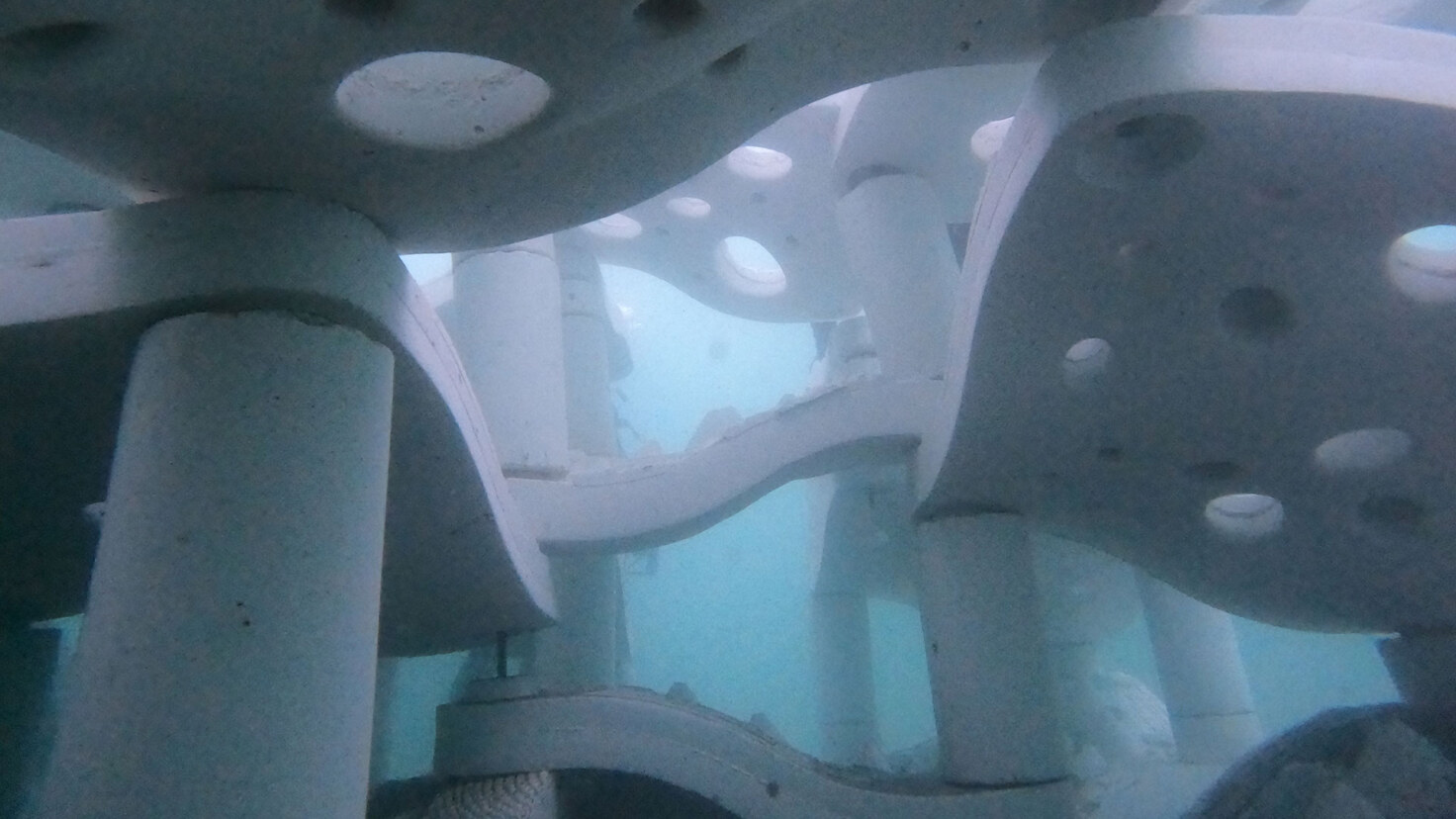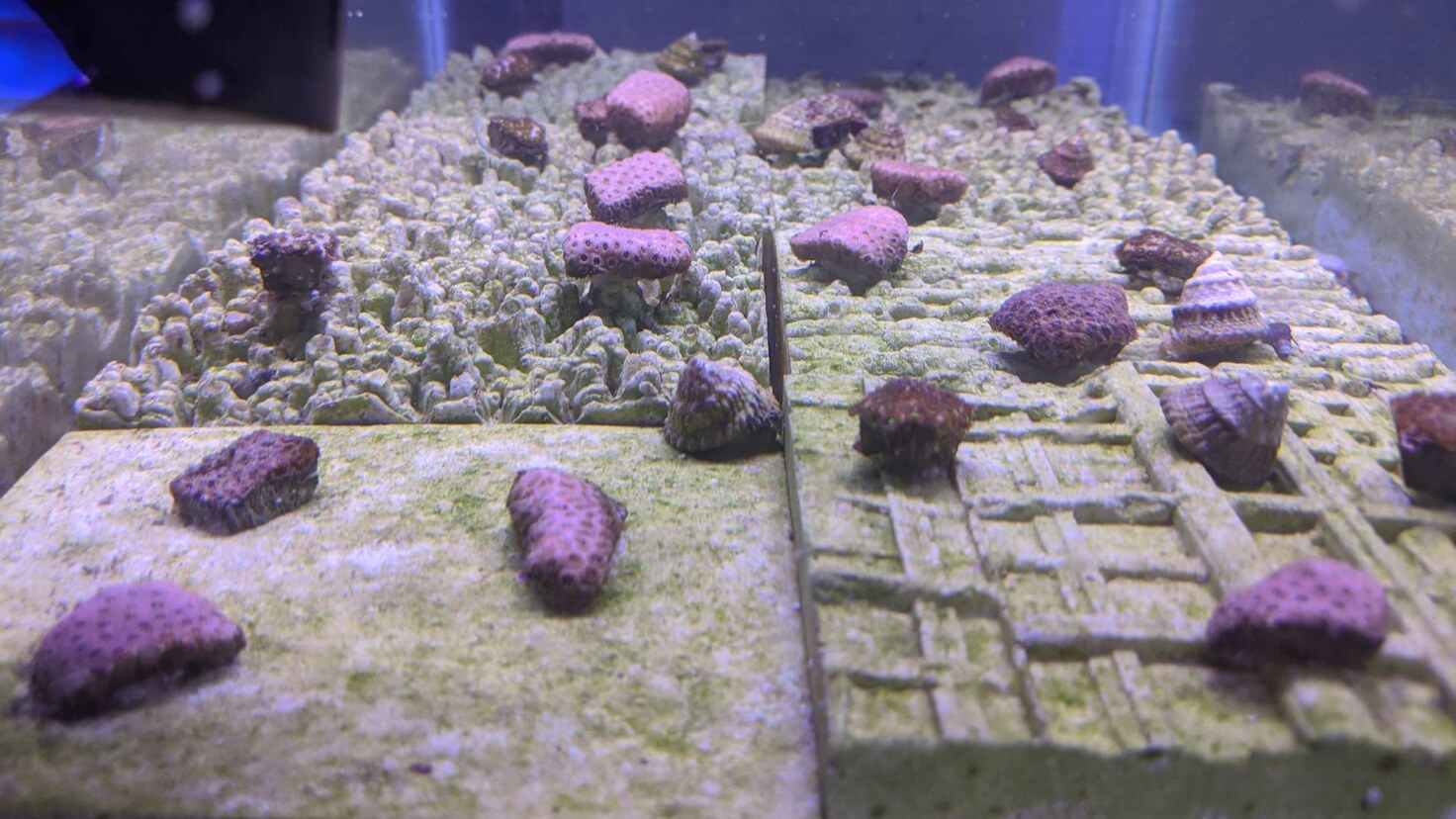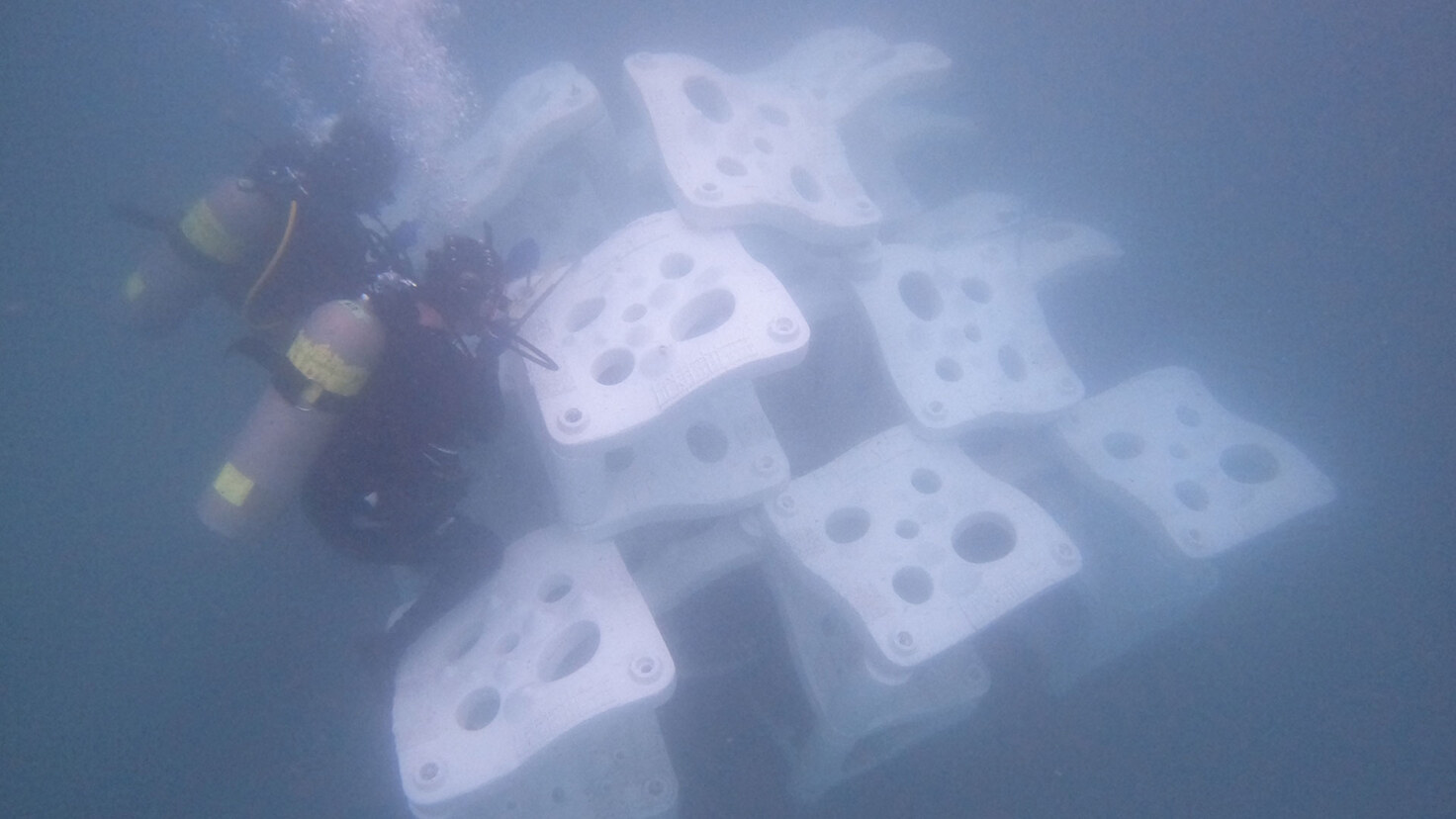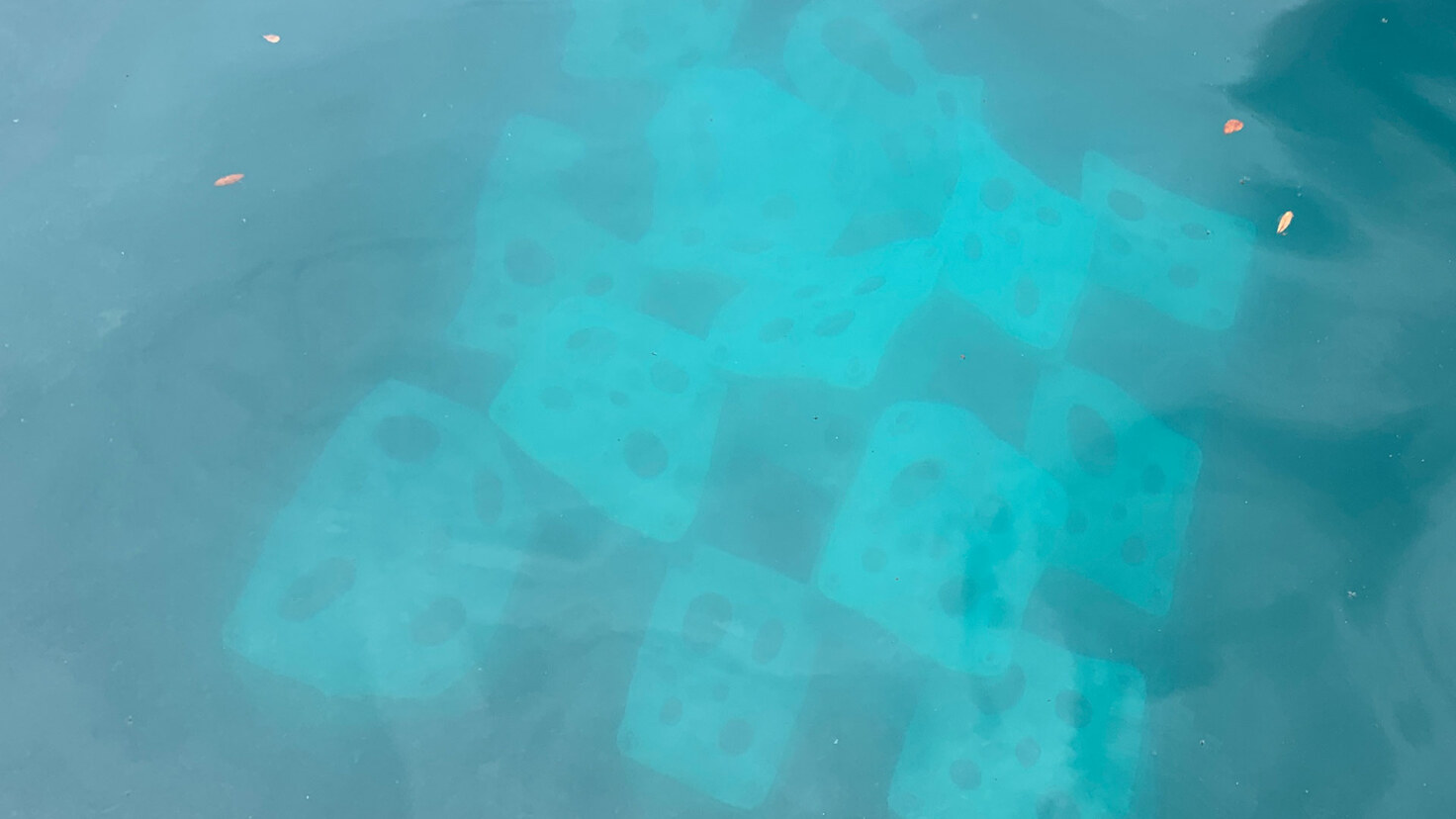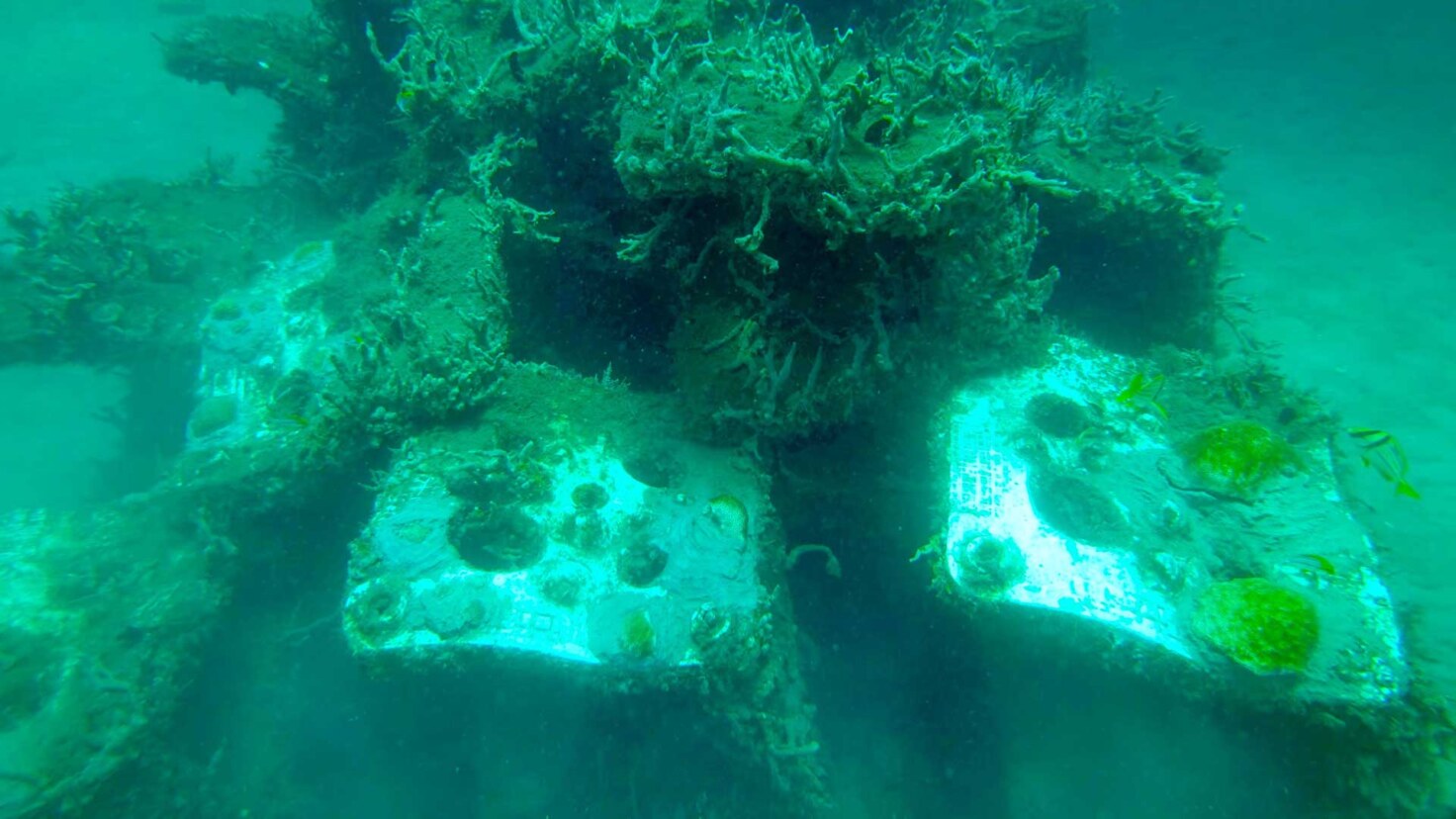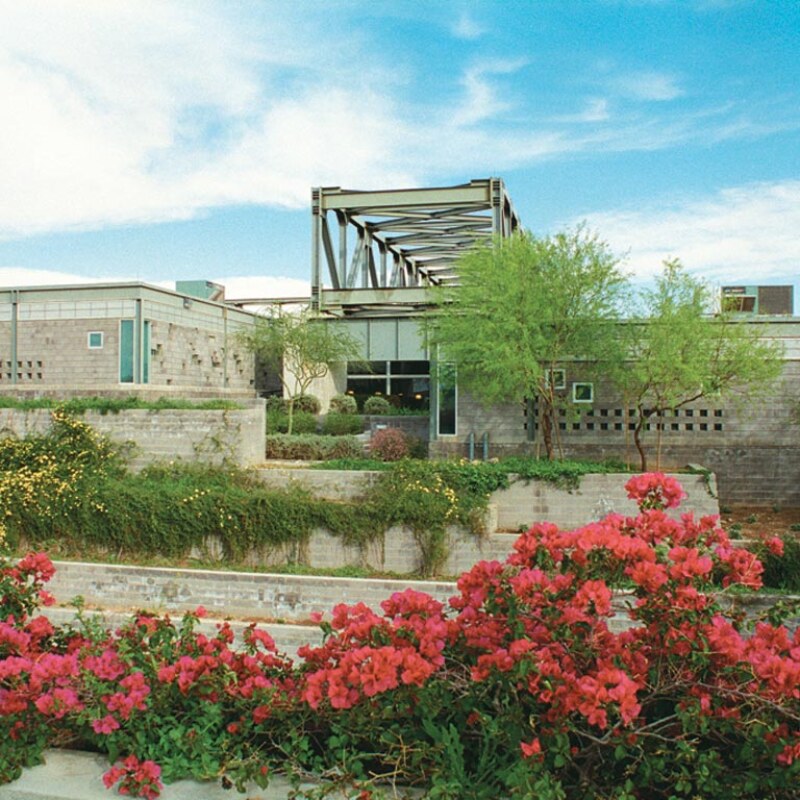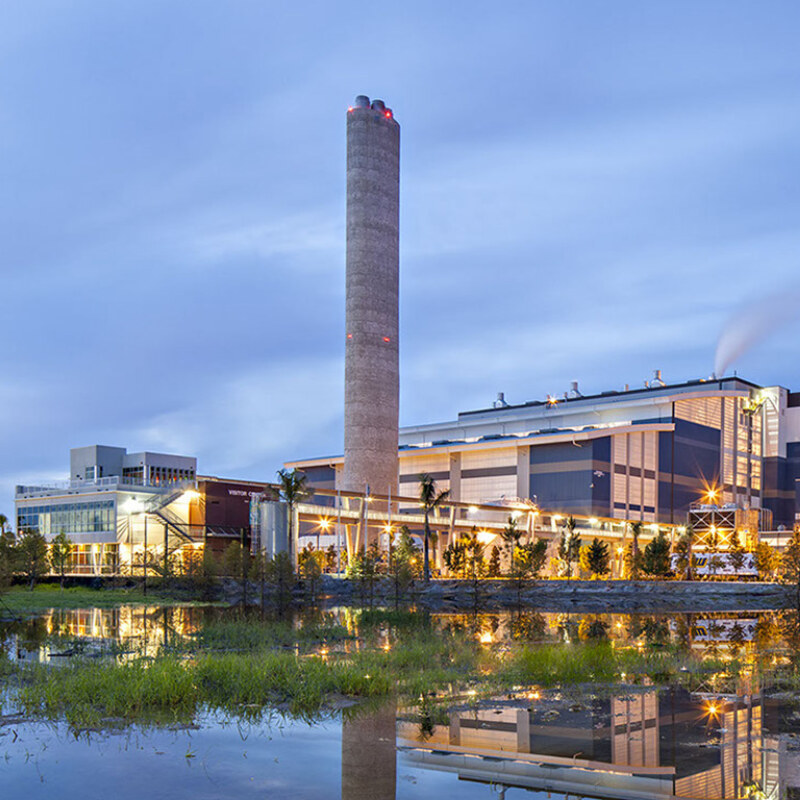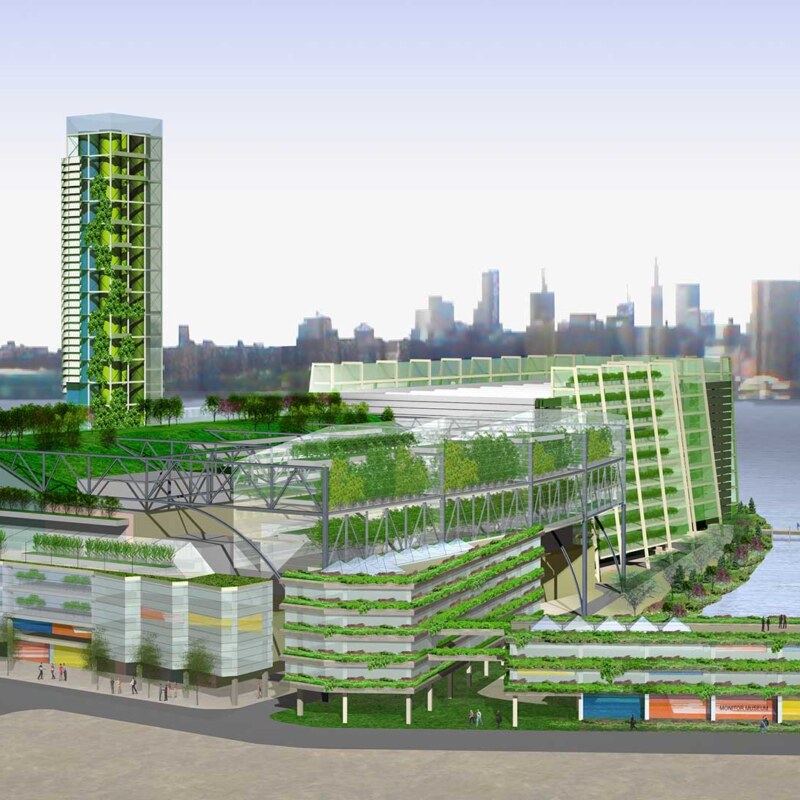Marine Living Structures Initiative
The Marine Living Structures Initiative (MLSI) is a collaborative program merging sustainable materials, biological habitat design and innovative surface textures and forms to create prototype armatures that support the regeneration of marine habitats and enhance coastal resiliency. MLSI is a collaboration between Singer Studio and The Reef Institute (TRI) in West Palm Beach, Florida.
Florida’s coral reefs are currently experiencing a multi-year disease-related mortality event that has resulted in massive die-offs in multiple coral species. According to one study, over the past 40 years, the coral cover has diminished from around 90% to less than 5% along surveyed portions of the Florida reef system. With the continuing loss of Florida Reef Tract coral populations many artificial reefs have been deployed to bolster existing habitats or create ones anew. At the same time, significant investments are being planned for new coastal infrastructure in an effort to make communities more resilient to storm surge and the early impacts of sea-level rise. MLSI seeks to create innovation in this space with new artificial reef materials, design, fabrication and deployment with the specific goal of optimizing both marine habitat regeneration and coastal resiliency. These living structures will not only act as habitat, but will form assemblies that strengthen as they grow, potentially creating new forms of hybrid ‘green gray’ infrastructure that protect coastlines while enhancing local ecosystems and cleansing water.
MLSI’s artificial reef structures contain 70% recycled content and are higher in strength, marine durability, and lower in carbon intensity than traditional concrete used for marine infrastructure. Some of these matrices have higher alkalinity than standard concrete, which will be studied as an offset to mitigate increasingly acidic marine environments due to climate change. These materials are in ongoing testing for how they support coral recruitment, growth and diversity, as well as supporting the ecosystems corals depend upon. The 1st round of artificial reef modules and assemblages were cast locally and deployed in the intracoastal waters near TRI’s facility for in-situ monitoring.
The goal is to establish a proof of concept for recycled low-carbon environmentally regenerative artificial reefs that provide coastal protection, and ultimately to influence the materials and design of upcoming massive investments in coastal infrastructure. In the coming decades coastal cities around the world will be investing in new marine infrastructure to make shorelines more resilient to storm surge and wave action. The majority of this new infrastructure will be in the form of concrete utilizing virgin materials with a significant carbon footprint and minimal ecological value, or waste materials with no design for biological optimization. The MLSI Team believes there is an urgent need to innovate upon the currently available materials and forms utilized for coastal resiliency before new infrastructure is planned and built in Florida and elsewhere. Small projects like MLSI, operating as a proof of concept, can have significant influence on future coastal resiliency efforts – regenerating marine ecology, maximizing the durability and recycled content of new infrastructure and crucially lowering the carbon intensity of new costal construction.
MLSI has been made possible through the generous support of the Jeffrey Cook Charitable Trust and The Max and Victoria Dreyfus Foundation.
MLSI Project Credits:
Singer Studio: Michael Singer, Jason Bregman and Jonathan Fogelson
The Reef Institute: Leneita Fix, Executive Director and Dr. Charlie Gregory
Installation Team: Industrial Divers Inc. and Jonathan Fogelson
Project Partners: Palm Beach County Department of Environmental Resources Management
Additional Support From: Ecological Associates, Inc. (documentation), Peanut Island Shuttle Boat,
Pura Vida Divers, and the Palm Beach County Parks Department
This project is a part of Singer Studio’s Living Shoreline Initiative

